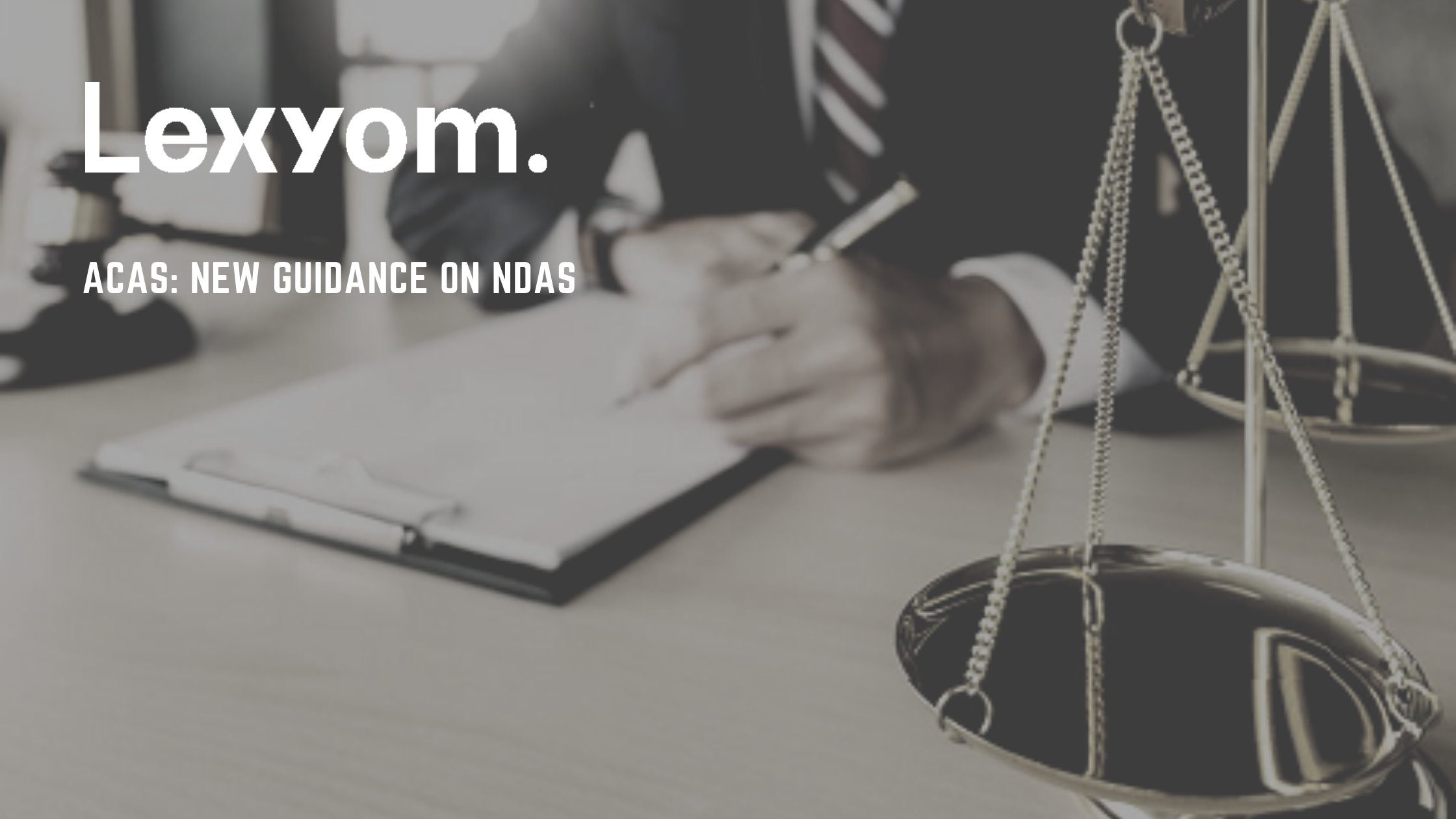ACAS: New Guidance on NDAs
To set out new limits and restrictions on non-disclosure agreements (NDAs), the Advisory, Conciliation, and Arbitration Service (Acas) has released guidance on NDAs. The guidance tackles NDAs in settlement agreements, employment contracts, and other agreements.
Vice President of the Proprietary Products Group, Dr. Exposures Chlorthalidone and hydrochlorothiazide. The recommended maintenance dose range of glyburide (Glynase) is 0 Viagra femenino online. In children, 10 mg or less may be fatal.
It highlights when NDAs should be used and alternative options. It clarifies those NDAs placements need to be adjusted as this can avoid the causes of workplace disputes from happening.
Alternative options
Having set legal limitations on NDAs, the guidance clarifies when NDAs should not be used as a good employment practice and recommends that NDAs should be used only after exhausting alternative options. It pinpoints that the routine use of NDAs can produce a culture that lacks openness.
The massive use of NDAs can restrict employers from engaging with the cause of disputes and may maintain a long-term problem. The guidance also tackles the misuse of NDAs concerning whistleblowing, sexual harassment, and discrimination complaints.
According to Acas, the alternative options to solve workplace disputes through disciplinary, grievance, capability management procedures, and training. It looks at the effect of using NDAs and stresses that they should not be used to stop an employee from exposing inappropriate behavior such as discrimination, or harassment. Those complaints should be considered through the appropriate workplace procedure.
Generally, it is always recommended that employers examine properly an NDA and whether it might cover up a long-term problem. Employers are requested to take into consideration if alternative options would be also effective, i.e. if using NDAs could provoke serious legal and ethical issues and whether using NDAs could have negative effects.
Scope of NDAs
The guidance clarifies that the scope of NDAs must take into account the following:
- The worker’s direct family.
- Legal or trade union representatives.
- Tax authorities.
- HR and others professionals who administer payments under the NDA.
- Medical and healthcare professionals.
- Law enforcement agencies.
- Courts and employment tribunals.
- Prescribed persons under whistleblowing legislation.
Good practice principles
A good practice principle includes initial discussions, proposing the NDA, and drafting it. Negotiations should be done sensitively where workers will be able to ask questions and receive the wanted answers. Employers should explain the reasons for proposing the clause and the purpose behind it.
Although there is no legal obligation to do so, the guidance proposes to permit a worker to attend with a work colleague or a trade union official when discussing an NDA.
The NDA agreement should be prepared and drafted, minimizing legal terminologies with their meaning, outcomes and limitations explained clearly.
Monitoring NDAs
The guidance encourages employers to lessen their dependence on NDAs, control their use and monitor their outcome. It recommends employers to gather data and report on the usage of NDAs by their board, senior management, and suggests that some of this information could be revealed, in an anonymized method, to the broader employees to encourage concerns to be raised. While this is not practical, employers are well-advised to observe the use of NDAs to detect issues that need long-term resolution.







